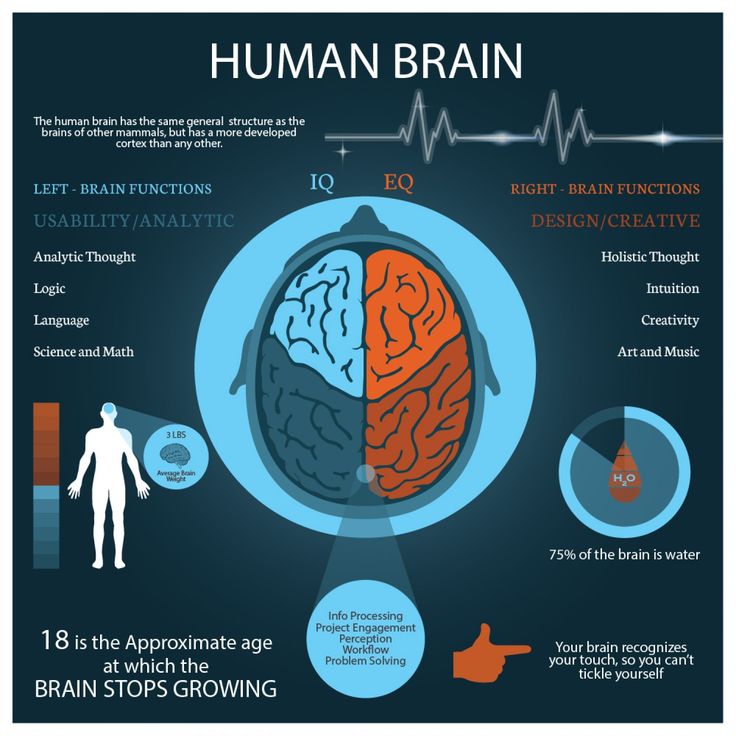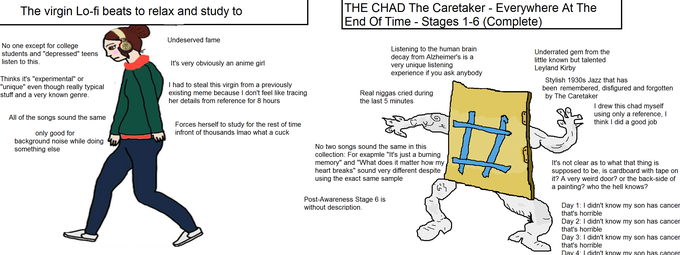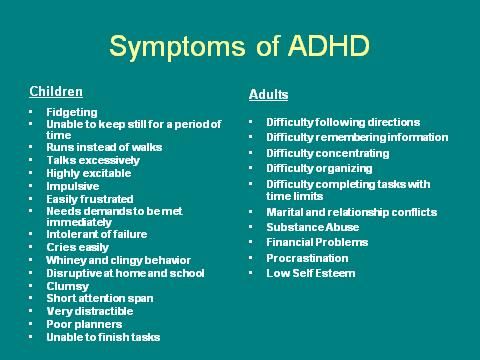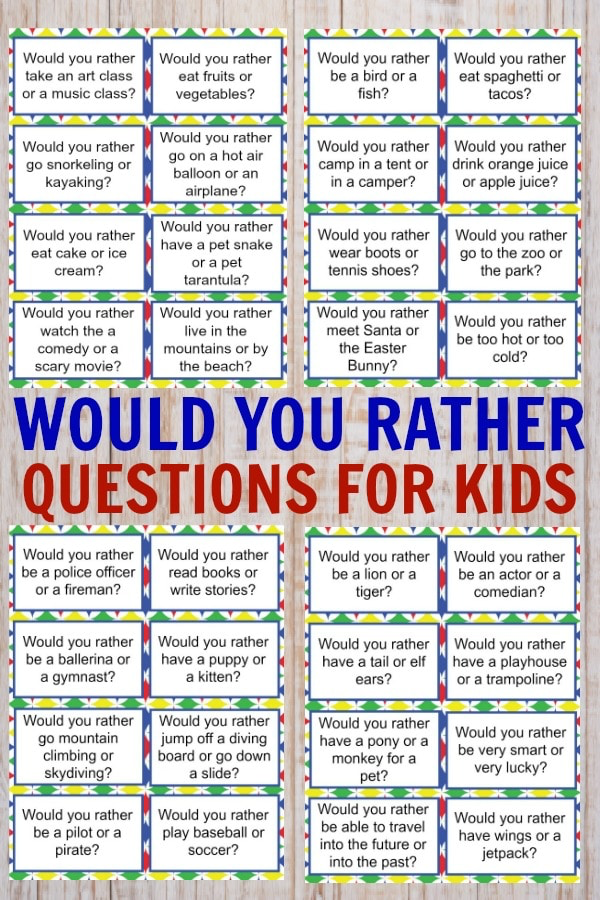Anger at the world
5 Reasons Why You're So Angry At The World (+ How To Stop)
Disclosure: this page contains affiliate links to select partners. We receive a commission should you choose to make a purchase after clicking on them.
Do you feel like you constantly have rage simmering on your mind’s back burner?
Maybe you wake up already feeling angry, or can’t sleep because of the knot in your stomach?
Countless people deal with low-grade anger on a constant basis, and it can be incredibly difficult to deal with.
Furthermore, most people don’t want to be angry all the time. Not only does this kind of constant anger wreak havoc on one’s body and mind, but it negatively affects pretty much all relationships.
So what causes this kind of constant anger? And what can be done about it?
The actions you can take to improve your anger at the world will depend entirely on its root cause. Once that’s been determined, you can figure out what steps you can take to help it.
Below are the most common reasons why you’re angry at the world, and what you can do to release your rage.
Speak to an accredited and experienced therapist to help you examine your anger at the world and overcome it. You may want to try speaking to one via BetterHelp.com for quality care at its most convenient.
1. You’re upset at all the injustices in the world.
You’ve probably heard the phrase “think globally, act locally” so many times that it makes your eye roll. But there’s a reason for that expression’s popularity. There’s very little that the average person can do about all the awful things that go on around the world on a regular basis.
The fact that we get news from all corners of the globe but don’t have the means to do anything about the ugliness out there can be incredibly frustrating. This is especially true if the horror shows strike close to home.
Human trafficking, animal abuse, environmental pollution, human rights atrocities… so many absolutely awful things happen every day, and the inability to cause a Reckoning can make anyone irate on a daily basis.
This is where acting locally – or taking whatever action you can – will mitigate some of that anger. Toppling pillars like Samson might not be something you’re capable of, but many small actions can lead to big changes.
No, you won’t be able to step in and obliterate a child trafficking ring on your own, nor can you take in and help every abused animal out there. But you can get involved and do what you can to help out.
Donate to reputable organizations, or do fundraising work with them. Foster rescue animals at home or volunteer to help take care of them at a facility. If you have the training and physical capability for it, you can even volunteer to be part of first responder/rescue teams.
Every single person on the planet has skill sets they can use to help others. Take the anger you feel and use it to transcend the helplessness and start helping instead. You are guaranteed to feel a lot less anger when you know you’re doing something tangible to make the world a better place.
2. The things you read in the news and social media fill you with rage.
Robert Fisk, a military correspondent with The Independent newspaper, once commented on how Victorian news reporters would: “…view battles from hilltops in the company of ladies, immune to suffering, only occasionally glancing towards the distant pop-pop of cannon fire.”
That sort of biased, one-sided perspective didn’t disappear last century, but instead has developed into what people now consider to be “real” journalism.
Facts are sidelined in favor of sensationalism, and opinion pieces from various sources are presented as reality, rather than an individual perspective.
Consider this question: how often do you get irate about something you’ve read only to find out later that vital details had been skewed or omitted for the sake of stirring the pot, so to speak? Or misrepresented entirely in order to poison people against someone or something, while extolling another’s virtues?
The bottom line here is to not believe everything you read or see on the news, or social media. Just because it’s broadcast doesn’t mean that it’s true. There are always numerous sides to a story, and one never knows the truth of a situation unless one witnesses it firsthand.
Just because it’s broadcast doesn’t mean that it’s true. There are always numerous sides to a story, and one never knows the truth of a situation unless one witnesses it firsthand.
Analyze the pieces that are making you angry and try to delve into the motivation behind why they’re being published.
Are they offering neutral news reporting from an unbiased perspective? Or are they one-sided and sensationalized?
What effect do they have on you?
Furthermore, are they factual or opinion based?
Are you only exposing yourself to “news” that fuels your confirmation bias? Or are you taking the time to look at different viewpoints and then decide what to think or feel about it?
Learn to be discerning and delve into several perspectives of whatever’s going on. Do research, and look at opposing information, even if it makes you uncomfortable to do so. What riled you up one moment might cool significantly once you’ve gleaned a bit more information on the wider picture.
Furthermore, ask yourself why you’re exposing yourself to all of this. Is it to feel informed about various subjects? Or because you want to feel intense emotions and you’re using this stuff as fuel?
If it’s not vital, then cut it out of your life as much as possible. Much like junk food, a treat can become a threat if it’s not consumed in moderation.
3. You feel like those in charge are making all the wrong decisions.
Many people feel anger at the decisions being made about their lives when they feel like they have no input in the matter.
Children and pre-teens get incredibly frustrated when they feel that they don’t have a say in their own lives. There’s no free choice when it comes to what they eat, where they go, what time they get to sleep, etc. They’re merely served food and expected to eat it, and every aspect of their lives is dictated to them.
As such, it’s not surprising why so many rebel in their teens: they ache for the freedom of personal sovereignty and the ability to make decisions for themselves.
Needless to say, for an adult to feel like they have virtually no say in what’s going on in their lives is enough to make anyone incendiary with rage.
When those in positions of power seem to be constantly dropping the ball, or making decisions that affect people, businesses, and families negatively, a lot of people end up feeling angry and betrayed.
Doubly so if they didn’t vote for the people who ended up in positions of authority.
The best way to deal with this kind of anger is to focus on areas in which you do have autonomy, and work with those as best you can. If something doesn’t affect you personally, right now, push it aside and don’t even think about it. Just focus on you right now.
Where are the areas in which you can step into your personal power?
How can you express yourself freely without recrimination?
Once you’ve taken the steps to really celebrate your autonomy, you can go about extending your influence in a wider sphere.
For example, are you feeling a great deal of anger at the fact that your city council doesn’t do enough outreach work for the homeless, especially in wintertime? Then start a program of your own. Get together with members of your neighborhood or faith community and take donations of food, warm clothing, sleeping bags, etc. Then create care packages that you can pack into a car and deliver to homeless folks right on the street.
Get together with members of your neighborhood or faith community and take donations of food, warm clothing, sleeping bags, etc. Then create care packages that you can pack into a car and deliver to homeless folks right on the street.
There are always some actions you can take that don’t require permission from higher ups. Taking this kind of initiative will do a lot for reducing your rage, and increasing your overall sense of righteousness and personal fulfillment.
4. Things are happening in your life that you can’t control.
The feeling of powerlessness often manifests as anger. This could range from feeling intensely angry about the insomnia that you can’t seem to shake, to being stuck in traffic, or dealing with crap traumatic memories that you can’t seem to let go of.
The latter in particular can inspire a lot of anger, especially if you never got resolution or closure in the circumstances that damaged you. Many people who were abused as children end up feeling a great deal of rage in adulthood, for example. This is because they were trapped in their circumstances when they were younger and were never able to get justice or restitution for what they experienced.
This is because they were trapped in their circumstances when they were younger and were never able to get justice or restitution for what they experienced.
Later in life, when they come across situations that they can’t control, or feel are unfair to them, those old feelings will resurface. Since they never had closure, it’s like they have open wounds that cause extreme anger when prodded at. If you’ve ever had a bruise that you keep whacking on tables or doorways, you’ll know what that’s like.
When this happens, take a few deep breaths to center yourself. Recognize whether you’re actually feeling anger about what’s happening in this moment, or if you’re reacting to something that happened in the past, but you’re being reminded of now.
Then ask yourself whether you can accept the fact that you have no control over what’s going on right now. Once you accept that you can’t do bupkis to change your current circumstances, you can release yourself into that feeling.
Then find an outlet to release the tension that’s built up inside you. If you’re able to go for a walk or do some physical exercise, then do that. It’ll allow the energetic buildup to flow out of your body, and you’ll feel a lot lighter and more at ease as a result.
If you’re able to go for a walk or do some physical exercise, then do that. It’ll allow the energetic buildup to flow out of your body, and you’ll feel a lot lighter and more at ease as a result.
Alternatively, if you can’t get physical in that moment, then focus on your breath. Bring each angry thought to the surface and envision it encapsulated in a bubble. Then breathe that anger-filled bubble away from you with every exhalation. Each breath out pushes the anger further and further away from you until it fades out of view.
If you find it helpful, consider carrying some meditation beads with you. Some people like to wear mala bracelets they can fidget with when they feel sudden waves of anger or anxiety. Others like rosaries or similar.
Basically, find a way for you to capture what you’re feeling in the present moment, and let go of what arises in a healthy, focused manner.
5. You’re angry at the world for changing.
This ties in with the previous point about things that aren’t under one’s individual control.
I’ve heard from a lot of people that things were so much better “in their day.” Maybe we’ve all been guilty of this at some point. The music was better, food was healthier and cheaper, movies and books were more engaging…
Whether this is nostalgia or reality, the fact is that tons of people feel sincere anger and frustration at the world changing around them. This is especially true for those who might be upset at how technologically demanding everything is, if they have difficulty keeping up with it.
Many people take great comfort in sameness, and as a result they can feel an immense amount of fear and anxiety when change keeps happening around them. They want things to remain as they are, comfortable and dependable, so that they feel safe and secure in their surroundings. When big changes happen, they’re suddenly in unfamiliar territory and can get very angry and combative as a result.
This can extend to their expectations about how others should behave. As an example, you may have an older relative who’s irate at the thought of people asking one another their pronouns, or referring to folks by words that don’t make any sense to them. A world in which people can choose something as fundamental (to them) as gender is frustrating and confusing.
A world in which people can choose something as fundamental (to them) as gender is frustrating and confusing.
In their minds, things are the way they are, and to question that puts their entire paradigm into question. It’s much like taking a person who’s been immersed in a devout faith their entire lives and dropping them into a country where a totally different faith is practiced. They might not have even been aware that there are other religions out there, let alone what “those people” believe or practice.
If this is where your anger is stemming from, then determine exactly what it is that’s upsetting you, and why, and what you can do about it. If it’s contemporary media that you dislike, then make a point of not exposing yourself to it. Similarly, if you don’t like certain aspects of modern culture, keep in mind that nobody is forcing you to engage with it. Just don’t condemn others who choose to walk a different path than you do.
Personal choice is often weaponized to deprive others of the same. Someone might refuse to take a certain action or speak certain words because they’re firm in their personal autonomy. But then they want to force others to behave the way they want them to in order to maintain their individual concept of order and propriety.
Someone might refuse to take a certain action or speak certain words because they’re firm in their personal autonomy. But then they want to force others to behave the way they want them to in order to maintain their individual concept of order and propriety.
Remember the quote “Your freedom ends where mine begins”?
The world will change, but you can find your comfort wherever you like. Don’t demand others change or stagnate to suit your whim, but don’t feel obligated to change because others want you to either.
Just live.
Remember to always seek the root cause.
No matter what you’re feeling, there’s always an underlying reason for feeling it. If you’re feeling tired all the time, then you’d determine why, right? Working long hours, feeling emotionally overwhelmed, not getting enough sleep, being anemic or otherwise nutrient deficient, fighting off an illness… all of these are very tangible things that can contribute to someone feeling exhausted. And when you get to the root of why you’re tired, you can take action to get more rest.
The same is true for sorting out the source of your anger.
Take some time to investigate your mind and spirit to determine why you’re feeling all of this rage. You’ll likely feel more anger, as well as other rollercoaster emotions, while doing this. That’s understandable, but it’s the most important part of this investigative process.
Many people choose an externalized subject to project their anger onto in order to avoid or mask problems that they don’t want to face head on. They might be dealing with intense unhappiness in their marriage or partnership, for example, but don’t want to face the reality of that. Instead, they choose something outside of themselves to use as a scapegoat for their own unwanted emotions.
In a case like this, it isn’t the political climate, social injustice, or anything else “out there” that’s causing you to be angry. It’s simply aspects of your own life that you’re refusing to look at plainly because confronting and dealing with them will require change. Possibly the kind of change you don’t want.
Possibly the kind of change you don’t want.
But that’s life. We don’t always – or even often – get the life circumstances we’ve daydreamed about. More often than not, we have to deal with issues we didn’t anticipate, and learn to navigate existence while rugs keep being pulled out from beneath our feet. We can’t nail those rugs in place, but instead have to come up with ways to ride them out with grace.
Release your anger so it doesn’t control you.
If you’ve been avoiding looking at the truth of your circumstances and lashing out in all directions, now is the time to stop.
Be real about what’s actually going on inside you; what you’re really angry about. Once you have that honesty in front of you, you can confront it head on and develop protocols on how to move forward.
That doesn’t mean it’ll be an easy ride, nor a pleasant one. But like the other situations mentioned above, taking action is the one thing that will quell and release the rage inside you.
In Traditional Chinese Medicine (TCM), anger is seen as a build-up of creative energy that needs somewhere to go, but has been blocked from doing so. This type of blockage can manifest physically as well as emotionally. For example, kidney and gall stones are considered to be physical symptoms of unexpressed rage.
Anger is a type of energy, and needs to be given direction so it can be released. This is exactly why finding an outlet for it is so important.
As we mentioned earlier, you can try to release this rage through meditation and physical activity. However, the most effective thing you can do to let go of the anger you feel at the world is to do something about it.
Some people naturally find a way to use their anger in order to fuel positive change, but most need a bit of help learning how to harness and channel it. It’s a lot easier to be angry and feel despondent than to figure out how to transform that into transformative change, but you can do it.
Write down the issues that anger you the most, and then do some research to find some organizations that work towards helping those very issues. If you like, start looking at some of these outreach programs:
United Nations Refugee Agency
Help the Helpless
Animal Haven
Environmental Law Alliance Worldwide (ELAW)
Instead of letting your anger consume you and poison your personal life, let it be a fire under your bottom. Throw yourself into doing some good, whether in your community or beyond, and watch that hot rage dissipate into clouds of positivity and growth.
Still not sure why you are angry at the world or what to do about it? Speak to a therapist today who can walk you through the process. Simply connect with one of the experienced therapists on BetterHelp.com.
You may also like:
- In A World That Feels Like It’s Going Crazy, Here’s How To Stay Sane
- 9 Ways To Channel Your Anger And Release It Positively
- How To Let Go Of Anger: The 7 Stages From Rage To Release
- 7 Simple Steps To Not Let Things Bother You
- 5 Ways To Not Be So Easily Offended By Everything And Everyone
What to do when you're angry at the state of the world
It can be hard to know what to do with pent-up anger over worldwide events, especially when it feels like you have little control.
 Here we explore ways to cope with this anger
Here we explore ways to cope with this angerThere is a lot happening in the world right now. For some of us, the events unfolding are giving rise to some serious anger. Why isn’t more being done? What does our future look like? Why is change taking so long?
I spent a few minutes on Twitter this morning (ironically looking for article ideas) and, within a few minutes, I felt a familiar fire creeping up my torso (anger, not indigestion). This type of anger is difficult to handle. It’s broad and aimed at multiple people, systems and events. While a few calming breaths may take the edge off the intensity, it doesn’t quell it entirely. There’s also a lack of control fueling this anger, giving it a hopeless edge that sits heavy in your heart.
So, what can we do with this anger? What can we do when we’re not in a position to make the changes we want to see? I’m not going to claim to have all the answers, but I have some ideas to try. They might not eradicate the anger, but I hope they can help us channel it in a way that’s helpful, not harmful.
Allow yourself to feel the anger
We have to start by acknowledging our anger. It’s tempting to want to push it down, smothering it with positivity. But anger only grows when left unchecked. Instead, try to give yourself some space and time to look at the anger. This may be through a cathartic journaling session, or perhaps speaking to a friend, family member or therapist. Cry those tears of frustration.
Do you know what I really want to try? Going to a rage room. A space where you can smash stuff up and let that anger flow through your veins in a safe way.
However you do it, try not to fear this anger. It’s a human response and one we can experience and process in healthy ways. By giving it space, we let it move through us and dissipate, so we can think clearly and make our next move.
Take action
Remember that lack of control I mentioned? Something that can soften this edge is taking some sort of action. Of course, this will depend on what you’re feeling angry about, but there may be petitions you can sign, protests to attend or charities to donate to, fighting for change. And if you’re over the age of 18? Vote. Vote in local elections, vote in general elections - just make sure your voice is heard.
And if you’re over the age of 18? Vote. Vote in local elections, vote in general elections - just make sure your voice is heard.
In this video, I chat to counsellor Carol-Anne Cowie about inequality, its effect on mental health and what more needs to be done.
When we’re angry, we might feel a pull to isolate ourselves from others. Reaching out to others, however, is a helpful way of regaining a sense of peace and hope. Being around people we know and love can lead to laughs, smiles and deeper connections. Meeting new people can remind us of the good in the world and open our eyes to new perspectives.
We can also come together with our community to make change and even engage in community care. Not sure where to start? Search for community support groups and organisations near you.
Not sure where to start? Search for community support groups and organisations near you.
Do good to feel good
We may not have control over what people in power do, but we can live our values. If you feel this type of anger, chances are you have strong values in life, and living in alignment with these values can help you feel more at peace.
Not sure what your values are? Take a look at our core value guide.
If supporting others and having a positive impact in the world is a value of yours, now is a brilliant time to engage. Why not try your hand at volunteering? Find a cause you care about and find out how you can lend your skills to support it. Keen to work on your health whilst doing good? Check out GoodGym, where you can stay fit by helping others. Kindness has a ripple effect and has more power than you know.
Read books, not news
Ok, I’m not suggesting you completely ignore the news. We need to stay informed, but if you’re finding the constant influx of news is affecting your wellbeing, it may be time for a break. Tune into words that inspire and lift you, perhaps by seeking out positive news stories or by reading more fiction. Instead of podcasts, I’ve been filling my ears with audiobooks and can highly recommend.
Tune into words that inspire and lift you, perhaps by seeking out positive news stories or by reading more fiction. Instead of podcasts, I’ve been filling my ears with audiobooks and can highly recommend.
Not sure what to read? The Reading Well list contains books recommended by health experts and are ideal if you want to gain a little more self-awareness.
Look after yourself, as best you can
Suggesting self-care can feel a little inappropriate when the anger we’re feeling is about things no amount of self-care can solve. But the truth is, if we want to stand up for change, if we want to feel more at ease in tough situations, and if we want to support those in need… we have to look after ourselves. It sounds cliche, but yesterday I did this meditation and felt a stillness I hadn’t realised I was craving.
Your self-care might look different, and that’s OK. Do what feels right for you, I just encourage you to carve out a little time to honour your needs, because you deserve it. We all do.
We all do.
If you’re finding it hard to cope, help is available. Depending on your situation and needs, we have a list of places to get help, including helplines and private support.
- SOCIETY
By Kat Nicholls
Kat Nicholls is a content creator and strategist at Happiful.
Anger is normal (but you still have to work with it)
PSYCHOLOGY / August 22
Why do we all experience anger, what will happen if we do not express it, and how we can deal with it - we understand the article based on lecture materials by Natalia Presler
Where does anger come from
Anger is a force that prompts a person to act
To fight a tiger or a mammoth, you need to get angry properly. Initially, anger was given to man so that he could get angry, go hunting and feed himself, and maybe conquer the world. Anger is the force that motivates a person to act.
Now we don't see mammoths on the streets, but we communicate with other people every day. And we keep getting angry. So where does it come from?
And we keep getting angry. So where does it come from?
The first reason is exhaustion. When the body lacks resources, a person rises in search of them and at the same time tries to save himself by driving away all potential competitors. Therefore, lack of sleep, pain, even poor nutrition can easily become the cause of anger. In adults, an imbalance of fat in the body increases irritability, and in children, a large amount of sugar increases excitability.
The second reason is the frustration of the need to be accepted. When a person feels that there is no place for his interests, his opinion in the family or at work, that he lacks support and love, he accumulates aggression. Most often, such situations arise with people who do not know how to express it; we will talk about them below.
The third reason is not understanding why the other person behaves the way they do. Why is your partner rude every time you try to find out where he is now? Why does a five-year-old child not sit quietly in the theater, but throw his arms and legs at his neighbor? An adult believes that his partner is just nervous, and the child does not respect other people's boundaries. In fact, it may turn out that the partner had a controlling mother and he still perceives questions as a violation of his freedom, and an emotionally immature child is so fond of the performance that he cannot control himself.
In fact, it may turn out that the partner had a controlling mother and he still perceives questions as a violation of his freedom, and an emotionally immature child is so fond of the performance that he cannot control himself.
The fourth reason is the need for protection. When a child screams in the street and the mother cannot do anything, she becomes angry. First of all, the fact that she is losing control, and everyone sees it. Protection may be needed from pain, sadness, disappointment - in general, from all difficult emotions that threaten psychological security.
The fifth cause of anger is a threat to self-esteem. Sometimes a feeling of guilt arises because of the behavior of a loved one. “I am a bad mother” if the child screams and falls, if he is silent and plays the tablet, if he eats a lot, if he eats little... This situation makes you try to be good all the time and do everything right. It is especially difficult for perfectionists, that is, those who had the “be good” mindset in childhood in response to parental demands. The result is repressed aggression, more guilt and more anger.
The result is repressed aggression, more guilt and more anger.
Why we don't remember our childhood feelings
Psychoanalytically oriented psychologists are sure that our relationship with anger comes from childhood. All adults were once small, they experienced anger and somehow learned to cope with it, and then ... However, let's go in order.
Imagine that a baby is born. He is surrounded by love, care and is in symbiosis with his mother. The first six months is the state when he actually considers his mother as his continuation. A very close bond is necessary for the infant to survive.
Having matured a little, the child is still convinced that the mother exists only to feed, warm, entertain. But is it? Of course not. Over time, the needs of the mother, who needs to go to the toilet, wash her hair, go to the store, and sometimes just sit with a cup of tea, become more and more pronounced. Sometimes a mother is not ready to give her child love and care because she is tired, and this is completely normal.
Alas, at this moment the child is frustrated. He feels that his needs are not being met in the way he used to, and begins to get angry. At the peak of experiences, the child realizes the presence of a third and understands: the mother is actually not his, but her own and father's. The kid is going through a hard time the impossibility of being with his mother entirely. This anger often goes unexpressed because "angry is bad."
There is also the reverse situation, but it also generates anger. If the family revolves around the child, he simultaneously feels insanely important and very sick, that is, unable to take care of himself, inept, the one who needs to be monitored, controlled, helped all the time. Aggression also arises in this situation.
All this happens between the ages of 4 and 6. At the same time, fantasies and fears arise in the child: a monster is hiding under the bed, witches are flying outside the window, darkness is just waiting to pounce from behind the closet door . .. During this period, the child may begin to masturbate to cope with anxiety, or become aggressive in the nursery. garden. All his activity is aimed at coping with emotions. This is quite difficult, and as a result, children's feelings are forced out into a symbolic "basement", placed under lock and key by the psyche. And this means that in most cases the child ceases to remember them: childhood amnesia sets in.
.. During this period, the child may begin to masturbate to cope with anxiety, or become aggressive in the nursery. garden. All his activity is aimed at coping with emotions. This is quite difficult, and as a result, children's feelings are forced out into a symbolic "basement", placed under lock and key by the psyche. And this means that in most cases the child ceases to remember them: childhood amnesia sets in.
And so a person grows up, builds a family, he has his own children - and his own feelings are still repressed, forgotten. However, it is with them that both he and his partner have to deal.
"Red Buttons"
There are situations that make an adult explode. The reaction is not always adequate to the situation - the one who caused the outburst of anger thinks to himself: "What did I say? .." In fact, he, without knowing it, pressed the "red button". Each person has their own content of these buttons, but globally they are divided into two types.
1. The last straw
Let's say a mother gives to her child all the time. She plays with full dedication, eats dinner in five minutes, does not close the door to the toilet, hardly sleeps... Or, conversely, she spends 10 hours a day at work, barely has time to play with the child in the evening, and also cooks soup, cleans the floor, reads a book on how to communicate with a child ... And finally, the husband says something about an unwashed plate. Can you imagine the reaction? Explosion! The problem, of course, is not in the plate. When a person holds back emotions for too long, anything can be the last straw.
What to do about it: don't sacrifice everything for one area of life, but do exactly as much as you can; track irritation and fatigue at the very beginning; talk about it to relatives and carry out prevention (“make children a happy mother”) until the glass overflows.
2. Sore callus
Suppose a person had a father who kept track of what time the child came home all his childhood, controlled whether the light in the bathroom was turned off, whether the closet was tidied up, whether the dishes were washed. Or the mother constantly read the diary, interfered in relationships with peers, aggressively invaded life. Or already in adulthood, the previous partner terrorized with calls. Therefore, past experience can be included in new relationships.
Or the mother constantly read the diary, interfered in relationships with peers, aggressively invaded life. Or already in adulthood, the previous partner terrorized with calls. Therefore, past experience can be included in new relationships.
“Listen, maybe you should leave the meeting earlier than the rest of us because you will be walking down a dark street?” - partner asks. "What are you telling me? But why should I always do everything as you said?" - A sudden explosion occurs.
The red button can be an emotionally charged experience from any period of life when a person has experienced and suppressed anger.
What to do with it: not sacrifice everything for one area of life, but do exactly as much as you can; track irritation and fatigue at the very beginning; talk about it to relatives and carry out prevention (“make children a happy mother”) until the glass overflows.
Ladder of anger
Both an adult and a child can find themselves in a situation where sparks are already flying, a scream or even a fight begins. Sometimes it is not clear how a calm situation turned into this.
Sometimes it is not clear how a calm situation turned into this.
What's going on? Anger does not appear immediately, but goes through several stages before reaching a peak. This can be represented as a ladder. Everything starts in the zone of emotional comfort, where it is calm and nothing disturbs. This is a different situation for every person.
We recommend that you think about when this state occurs for you: when you are lying on the sofa with a book, walking in the park, playing with a child, at work.
-
The next step is irritation. Someone said something wrong, did something wrong, everything does not go according to plan - and the person starts to boil. In this state, you can still think and understand what caused the irritation.
It is important here to notice the first notes of irritation, until they escalated into uncontrollable aggression.
-
The last step is an emotional outburst.
 There is no control in it: a person is no longer aware of what is happening to him, cannot analyze his behavior, does not want to stop and "turns on" himself.
There is no control in it: a person is no longer aware of what is happening to him, cannot analyze his behavior, does not want to stop and "turns on" himself.
Do you remember the slogan: “It is better to prevent a fire than to put it out”? When you are already at the last step, only the automatic mechanism for getting out of the current situation will work. For example, run out of the room shouting: "That's it, I can't take it anymore", - and take a breath. But this does not solve the problem globally. Therefore, we recommend that you develop a mechanism for how to deal with irritation at the previous stage, and then you simply will not reach the peak of uncontrollable anger.
WHAT HAPPENS IF YOU DON'T EXPRESS ANGER
Have you ever met people who have difficulty expressing anger?
The problem is that this emotion still arises, but it is expressed inadequately: it either blows up a person inconsistently with the situation, or hides and makes itself felt in the form of passive aggression
Unfortunately, this is a very common story: in our culture, the open expression of strong emotions is taboo, we are taught from childhood not to be angry. People who do not know how to be angry, as a rule, are captured by their childhood conflicts. They cannot talk about their needs and adequately defend their position, they are internally irritated with themselves and others that they do not succeed.
People who do not know how to be angry, as a rule, are captured by their childhood conflicts. They cannot talk about their needs and adequately defend their position, they are internally irritated with themselves and others that they do not succeed.
Sometimes they don't even realize that they feel anger and can't do anything about it. The problem is that this emotion still arises, but it is expressed inadequately: it either blows up a person inconsistently with the situation, or hides and makes itself felt in the form of passive aggression. Let's say a person gets a job. At first he shows himself well, but over time he begins to sabotage everything. And his boss is a fool, and the tasks are not according to his standards, and his colleagues do everything wrong. As a result, a person is fired or leaves on his own, and the cycle begins anew. At the same time, he can become a domestic tyrant: find fault with the fact that the dishes are not washed, slippers are not right, the child is naughty. Emotional and physical rejection between spouses (unwillingness to talk, listen, make love) also speaks of passive aggression. In children, it can manifest itself through poor grades or refusal to eat, that is, neglect of what is important to parents. What's happening? A person cannot express his anger directly, so he begins to do things that will anger others and lead to a break in relations.
Emotional and physical rejection between spouses (unwillingness to talk, listen, make love) also speaks of passive aggression. In children, it can manifest itself through poor grades or refusal to eat, that is, neglect of what is important to parents. What's happening? A person cannot express his anger directly, so he begins to do things that will anger others and lead to a break in relations.
If you see a person who constantly blames others, thinks that everyone around is fools, this is a person with suppressed anger. In childhood, he could not be angry, especially at his parents, and he unconsciously "acts out" in adulthood.
It is worth remembering that anger is an emotion, it will arise in any case. And it depends only on us how it will be expressed in behavior and how it will affect our relations with others.
How to help yourself deal with anger
It is already clear that it is necessary to express anger, and it is preferable to do it constructively. Such a skill improves life, makes a person a more integral personality and allows you to build harmonious relationships with others. So how can you help yourself deal with anger?
Such a skill improves life, makes a person a more integral personality and allows you to build harmonious relationships with others. So how can you help yourself deal with anger?
1. Learn to recognize irritation in yourself before it develops into anger
sleep. Remember that the first cause of anger is the exhaustion of the body. Allow yourself to rest, arrange a “detox” from your daily routine, arrange with family members to help you with this.
Second, look at past experiences. What makes you angry and angry? If you have already found your pain points, try to notice them in different situations.
2. Allow yourself to feel
Despite children's attitudes, there are no good and bad emotions. Feeling and expressing is normal. Moreover, anger, resentment, sadness and anger are due to the characteristics of the human body. If you completely deny negative emotions and try to pretend that you have a solid positive, problems arise. As soon as you admit to yourself what you are really experiencing and allow yourself to be with it, the feeling of guilt will go away. This means that anger will not accumulate, risking erupting at the most unfortunate moment.
As soon as you admit to yourself what you are really experiencing and allow yourself to be with it, the feeling of guilt will go away. This means that anger will not accumulate, risking erupting at the most unfortunate moment.
It is important to teach children the right to feel. They understand how parents allow themselves and others to express emotions, even if they have never been spoken to about it. Access to anger must be open: if an adult learns this first, then a child can follow him.
3. Taking responsibility
Of course, your relationship with anger was formed in childhood, in your family of origin. Then you still didn’t know how to deal with difficult emotions. But now you are an adult and you can take matters into your own hands. Admit to yourself: you are not angry and angry because someone else is bad and does everything wrong. You experience this emotion because you yourself wanted it.
It is important and necessary to investigate the causes, but this is not a reason to say to relatives: "Tolerate my unconstructive anger until I deal with this" . As an adult, you yourself build relationships with others and with yourself. By accepting this responsibility, you get the opportunity to talk about yourself, about your feelings. Not "you're not a good person, you don't pay attention to me and the baby", but "I feel lonely if I don't spend enough time with you". The second option sounds different, doesn't it?
As an adult, you yourself build relationships with others and with yourself. By accepting this responsibility, you get the opportunity to talk about yourself, about your feelings. Not "you're not a good person, you don't pay attention to me and the baby", but "I feel lonely if I don't spend enough time with you". The second option sounds different, doesn't it?
Do not accumulate anger in yourself. You are responsible for expressing it while maintaining the relationship.
4. Speak in words
When people first enter into relationships, they get used to each other, including in everyday life. At this point, it is important to find out and talk about your pain points that you already know about. As you get to know each other, there will be more and more discoveries, and it is important not to forget to discuss them constructively.
— How do you feel about unwashed dishes? Here I am - it's fine, I can have it in the sink for two days.
- And if I see one dirty spoon, I get very annoyed.
— I like to sleep against the wall, can I sleep there all the time?
- No, I also like to sleep against the wall, let's alternate.
- It annoys me that you throw your socks at the entrance to the house. Why are you doing like that?
- I have long had such a habit of not forgetting how many clean ones are left. Is there anything we can do to not annoy you?
- What if you put a basket with a lid in the corridor, where you put your socks, but I won't see them?
Without such dialogues, irritation will accumulate like a snowball, and eventually result in a family scandal. So we recommend taking measures in advance and agreeing with each other, but not blaming, but first of all talking about yourself.
By the way, a parent can talk about his anger to his children. True, it is important not to do this too often and take into account age. If the child is overloaded with his feelings, he may consider himself responsible for the mood and condition of the parent.
5. Emotional release
Run, squat, lock yourself in a room and forcefully paint a sheet of paper, hit a pillow, scream in the forest... Any activity connected with the body helps to express aggression. In the long term, rest more often and change activities.
6. Give yourself first aid when you are angry
When a person is in a difficult condition, it is important for him to connect his body, emotions and thoughts. This helps to pull yourself together and start behaving constructively.
► Ask yourself: "What do I feel in my body?" Answer it: trembling at the fingertips, heartbeat, etc. Concentrate on this.
► Next question: "What are my emotions?" I am angry, offended, annoyed, my self-esteem is wounded ... Track the emotion, name it.
► Last question: "What do I think?" For example, I think the situation is terrible, that I keep getting here, this is the 15th time I've blown up this week.
By answering all the questions, you will connect the body, emotions and thoughts. Despite the fact that nothing seems to have changed, you, as a person, will come into balance, from which it is easier to perform other actions. For example, talk.
7. Help a loved one who can't handle his anger
One child once asked: "Why is dad allowed to yell at us, but I can't?" If you understand that reproaches and ignoring only aggravate the situation, It's time to help loved ones.
For a partner who came home from work and started yelling at a child, you can, for example, say:
- I see that you are tired and therefore you lose your temper. You find it hard to bear imperfection, that the dishes are not clean enough, or that the child is not well-behaved.
This should be said without irony, but sincerely, trying to understand how hard it really is for a person. For a child observing the situation, this option will also serve as a good example. And your partner will probably not be able to verbalize his anger right away, but he will feel better.
And your partner will probably not be able to verbalize his anger right away, but he will feel better.
8. Admit your mistakes
What do you do if you lose your temper, get angry with your child, and then feel guilty? Honestly ask for forgiveness:
- Forgive me. Sometimes I can't control my emotions, I don't want to do this, it's unpleasant for me, and you are not worthy of such treatment. Nobody deserves to be yelled at, I ask your forgiveness.
This is a very valuable experience for a child, unless, of course, you repeat an apology five times a day. He is good because, to firstly, the child sees: the parent is not God, he can make mistakes, which means that the child does not have to be perfect. Secondly, there is an understanding: a person can correct a mistake, apologize and improve relations. Thirdly, the child understands that the relationship with him is significant for the parent, his feelings are important, and he is ready for dialogue.
By the way, this scheme also works with a partner.
9. Go to psychotherapy
As a rule, you play emotionally difficult situations from childhood in a circle: find partners who look like parents, change one authoritarian boss for another, etc. You do this to deal with an old problem in an adult way, but use the old ways - and again it doesn't work. Psychotherapy helps to get to the bottom of frustrated emotions and develop new mechanisms that will help get out of the vicious circle.
Summarizing
-
There are no good and bad emotions. Each of them has a specific function, including anger. Healthy aggression helps protect yourself and defend your interests, while unhealthy destroys relationships.
-
Our way of dealing with anger begins in childhood, when we are not yet able to handle difficult emotions. Many adults then go around in circles, repeating scenarios of communication with parents in the family and at work, and try to replay past experiences.
 The advantage of being an adult is that we can consciously learn to express anger in a constructive way and teach it to our children.
The advantage of being an adult is that we can consciously learn to express anger in a constructive way and teach it to our children.
-
As much as we would like to be “positive” all the time, anger sometimes arises and needs to be expressed. Unexpressed anger accumulates and turns into passive aggression.
-
Each of us has our own "red buttons" that cause outbursts of anger. If you explore them and discuss with loved ones, you can avoid emotional outbursts.
-
Due to childhood amnesia, adults do not remember how angry they were when they were small, and do not realize the prohibition on anger, if any. For some, these feelings are still too complex. Psychotherapy helps to understand them.
Prepared by Maria Krasheninnikova-Khait based on the lecture by practicing psychologist and psychotherapist Natalia Presler “When parents are angry” especially for “Learning Environment”
DID YOU LIKE THIS ARTICLE?
Live-courses
from 1 month
Online courses in the most relevant areas of psychology from leading practicing psychologists.
| More details |
Recorded courses
from 1 month
Recorded individual intensive courses in key disciplines or sets of short-term courses to choose from in all areas.
| More |
To other materials
90,000 anger and hatred: what is it and how to deal with themSurvival Instructions
Text:
Stepan Balmond
Editor:
Katya Klentieva
March 12, 2022 10:13
Unpleasant events can cause anger. Often we also experience hatred, especially towards what we see as the cause of failure. We learned from psychologists why these feelings actually appear and how you can deal with them.
What is anger and hatred?
Anger is often confused with anger, as it is one of the manifestations of aggression. Here is what Olga Viktorova, a psychologist at the DocMed and DocDeti evidence-based clinic network, says about this: “Anger is more intense than anger and is expressed through facial expressions, gestures and words. This is a passive emotion: people do nothing, but only express their attitude . Anger more often implies actions aimed at changing the situation. Viktorova also emphasizes that anger is one of the basic human emotions. This is the basis for survival when the "fight, flight or freeze" mechanism is activated.
Here is what Olga Viktorova, a psychologist at the DocMed and DocDeti evidence-based clinic network, says about this: “Anger is more intense than anger and is expressed through facial expressions, gestures and words. This is a passive emotion: people do nothing, but only express their attitude . Anger more often implies actions aimed at changing the situation. Viktorova also emphasizes that anger is one of the basic human emotions. This is the basis for survival when the "fight, flight or freeze" mechanism is activated.
According to the expert, the trigger for anger can be a subjective sense of danger and a desire to protect one's boundaries. “We feel that we have been treated unfairly or wrongly. For example, we believe that during rush hour people should respect our borders, but they press against us from all sides. If we stand and swear under our breath, as all this is fed up, this is anger. It may seem that the neighbors are noisy or someone looked at us the wrong way, although in reality everything can be normal. Speaking of anger, it is important to understand that the situation itself may not be as dangerous as we think.
Speaking of anger, it is important to understand that the situation itself may not be as dangerous as we think.
Anger manifests itself in many different ways - from calmness to the strongest hatred. “Moreover, emotion can be directed by a person both outside and on himself. For example, in the form of direct violence against others or self-harm,” explains Olga Viktorova.
According to Nikita Prilepsky, a psychologist at the DocMed and DocDeti network of evidence-based medicine clinics, it is most correct to understand hatred as the most harmful and ineffective form of anger. It is based on the perception of the surrounding world, events or people. A person sees the object of his hatred as bad, immoral, dangerous, although such ideas are mainly formed on the basis of cognitive distortions.
What is assertive behavior and how can it help?
Psychologists distinguish three types of behavior: submissive, aggressive and assertive, each of which has its own characteristics. Submissive, or, as it is called, passive, often implies gentleness, compliance, unwillingness to participate in conflicts and defend one's point of view. People prone to this behavior can often lose control of their own lives. They adapt to the situation and environment, put their own interests, values and desires below those of others in order to be comfortable.
Submissive, or, as it is called, passive, often implies gentleness, compliance, unwillingness to participate in conflicts and defend one's point of view. People prone to this behavior can often lose control of their own lives. They adapt to the situation and environment, put their own interests, values and desires below those of others in order to be comfortable.
People prone to aggressive behavior, on the contrary, put themselves above and can even suppress others for the sake of their desires and goals, manipulate them and provoke them into conflicts. The environment seems to become an object of attack, so this behavior is considered destructive: a hostile and rude attitude towards others is also used as a way to assert oneself.
Specialists consider assertive behavior to be a compromise. "In psychology, this is understood as a trait that is characterized by independence from assessments, external influences and the ability to regulate one's own behavior," explains psychologist Natalya Tsybina. In her opinion, the basis of such behavior lies not only in respect for oneself, but also for others.
In her opinion, the basis of such behavior lies not only in respect for oneself, but also for others.
When experiencing feelings of hatred, a person with assertive behavior skills is able to openly express his feelings and emotions in a way that does not harm anyone.
Assertiveness can be learned - for this it is important to consciously approach your own behavior, analyze it, your reactions and relationships with others. The neuropsychologist of cognitive development Victoria Lyubarevich-Torkhova emphasizes that this allows not only to protect one's interests and values without conflict, but also to achieve what one wants through non-aggressive communication. In order to gain the skill of assertive behavior, the psychologist suggests adhering to the following recommendations:
- Say that you understand and accept the inner state and emotions of the other person: "I know what you want to do better."
- Express your disagreement, criticism, wish, or set the necessary task based on the facts: "I understand that you tried, but here it was worth doing differently, because it would be more effective.
 " The psychologist emphasizes the “but” in communication: saying it is not scary and even useful, as it helps to highlight exactly what causes negative emotions in you.
" The psychologist emphasizes the “but” in communication: saying it is not scary and even useful, as it helps to highlight exactly what causes negative emotions in you. - Offer a way out of the situation that satisfies both parties, as well as those positive qualities that your interlocutor has. For example: "You work well, and next time everything will work out."
In this way you express your feelings more environmentally and avoid conflict . “The more we practice these actions, the sooner the method of assertiveness becomes fundamental for us,” says the neuropsychologist. Lubarevich-Torkhova also advises at the beginning of mastering this practice to write down a plan for a future conversation - this will help you approach it more consciously and think in advance what exactly you want to say.
How to deal with anger?
As Viktorova notes, the main aspect in working with anger is the ability to see it, recognize it and open up to it.














